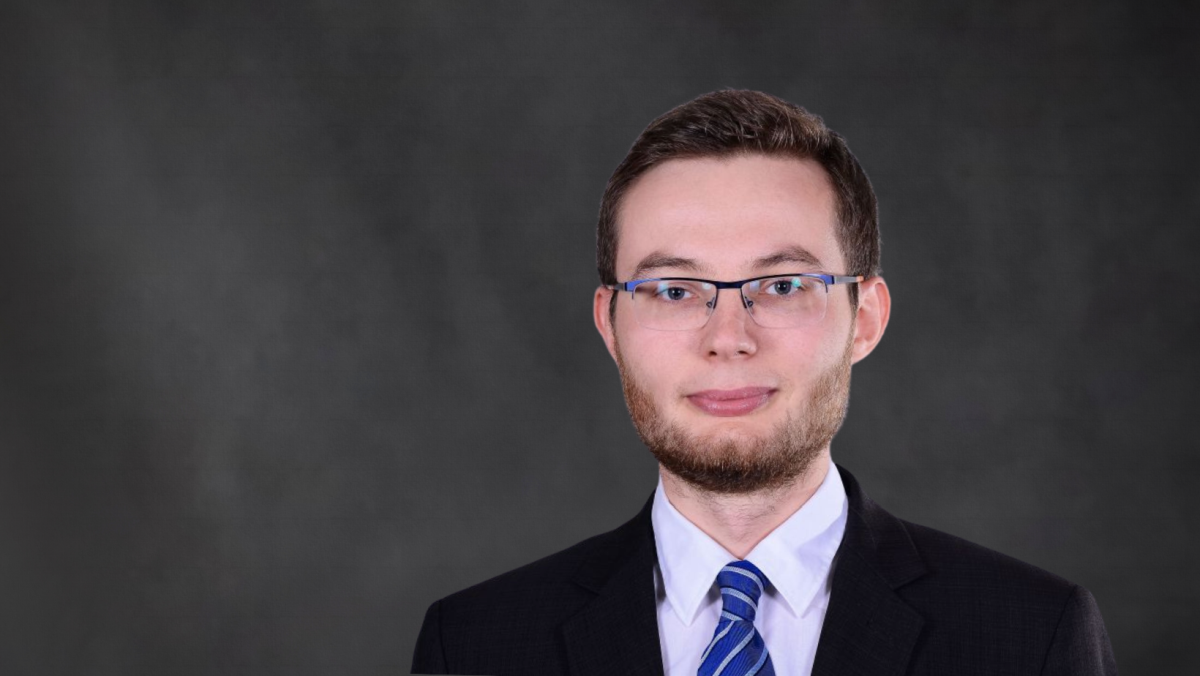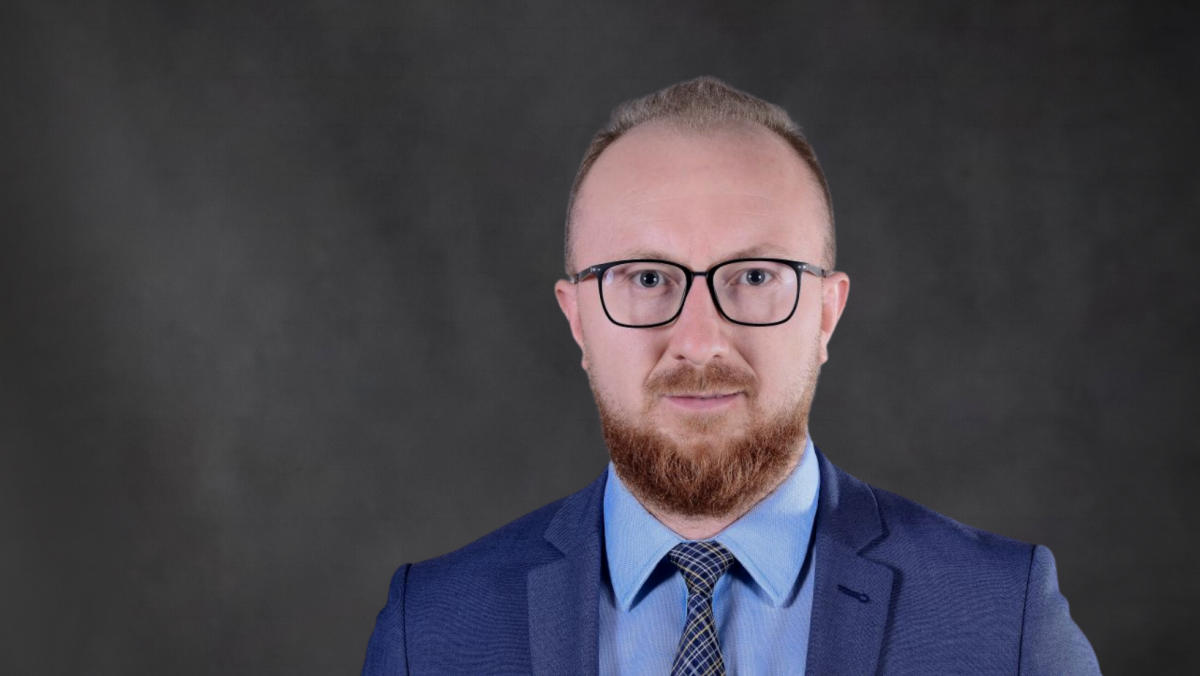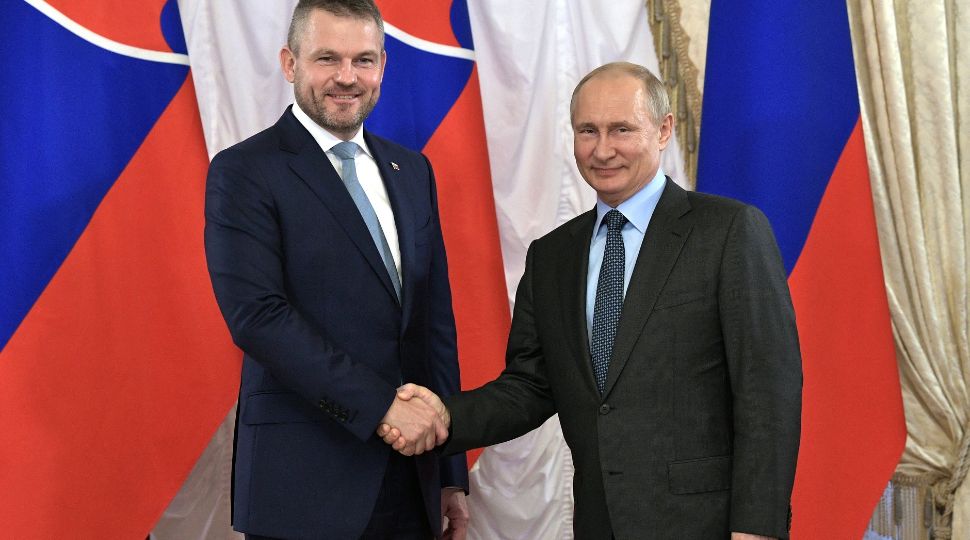Slovaks' Perception of the War in Ukraine is Changing - a Socio-Political Perspective
Slovak support for Ukraine in the war with Russia results from the attitude of the authorities, and not from cross-party or social consensus. The continuation of this policy after the parliamentary elections scheduled for 30 September is uncertain, given the position of the opposition party, Direction–Slovak Social Democracy (Smer-SSD), which is leading in almost all this year’s polls. Specifically, the party announced the suspension of military and political support for Ukraine. This is in line with the pro-Russian sympathies of a large part of society. The possible co-creation of a government by this party would be a challenge for Poland and would further weaken the Central European voice on security and eastern issues.
 RADOVAN STOKLASA / Reuters / Forum
RADOVAN STOKLASA / Reuters / Forum
Support of the Slovak authorities for Ukraine
From the beginning of the Russian full-scale invasion, the Slovak government of Eduard Heger, formed by four right-wing parties, unequivocally supported defending Ukraine and condemned Russia. Its policy resulted from the pro-Western beliefs of the coalition and the prime minister. He was one of the first leaders to visit Kyiv after the outbreak of the war. His government adopted a joint declaration with President Zuzana Čaputová and Speaker of Parliament Boris Kollár in which they condemned Russian attempts to revise borders by force. Ludovit Ódor's technical cabinet, which has been in power since last May, has continued this policy.
Slovakia actively supports Ukraine in the military dimension. According to various rankings, it is at the forefront when counted as a percentage of GDP. It has provided significant military assistance given that it is a country with a population of just five million. Among its transfers are a dozen MiG-29 fighters (for spare parts) and 24 self-propelled 155mm Zuzana howitzers in spring 2023, as well as several helicopters and 30 BMP-1 infantry fighting vehicles in 2022.
The eastern policy of the last government was endorsed by President Čaputová, who also has been supporting Ukraine. She was among the eight Central European presidents-signatories of a letter published a few days after the start of the Russian aggression in 2022 calling on the remaining EU countries to grant Ukraine candidate status for EU membership. To persuade other EU partners to this view, Čaputova was supposed to visit Portugal and Italy in the spring of 2022 with Polish President Andrzej Duda. The Slovak president’s trip was cancelled, however, after she was infected with COVID-19.
Slovak Perception of Russia’s Invasion of Ukraine
The policy of supporting Ukraine significantly contrasts with the attitudes of Slovak society. According to an Ipsos survey from March this year, 60% opposed the transfer of fighter jets. In turn, according to Eurostat research from autumn last year, less than half of the population (47%) approved of EU humanitarian, financial, and military aid to Ukraine, as well as the sanctions against Russia. This attitude distinguishes Slovakia in the EU, with only Greece reporting less support. Slovaks are also the only ones in the Visegrad Group of countries who have a mostly negative perception of refugees from Ukraine, and 68% want to reduce aid for them.
The divisions in Slovak society on supporting Ukraine are correlated to assessments of responsibility for the war and the perception of Russia. An understanding of its claims regarding its activities is not only high in Slovakia but also increasing. According to a Globsec Trends survey from March this year, 40% of Slovaks blamed Russia for starting the war, down from 51% of respondents a year earlier (compared to 85% of Poles, 71% of Czechs, and 54% of Hungarians). According to a study by the Slovak Academy of Sciences from June last year, the reaction to the Russian actions should be “balancing between Russia and the West” (44% of respondents) rather than siding with NATO or the EU (36%). Moreover, according to an Ipsos poll conducted in August this year, 30% of Slovaks would not be against their country being in the Russian sphere of influence (an increase of 6 percentage points compared to March this year). These attitudes are a consequence of long-term sympathies towards Russia resulting in part from the generally positive assessment of the USSR’s role during World War II and concerns about the economic consequences of the war in neighbouring Ukraine, making Slovakia fertile ground for pro-Russian propaganda and hybrid actions aimed at the local society.
The Political Class’s Perception of the War
Most of the political parties that have a chance to enter parliament are against further assistance to Ukraine or are cautious about it. Their pro-Russian stance brings together seemingly opposite ends of the political scene: the left-wing populist Smer-SSD (according to various polls, it had around 18-21% support at the turn of August and September this year), the fascist Republic (around 8-10%), and a party currently out of parliament but with a chance of election, the nationalist Slovak National Party (around 5-6%). They have built public support on criticism of the eastern policy of the governments of Heger and Ódor and President Čaputová, including the sanctions on Russia, which they present as the reason for the impoverishment of Slovaks. They combine demands for neutrality towards the war with anti-American, anti-NATO, and anti-refugee slogans similar to the Hungarian government’s narrative. Other parties include We Are Family (around 6-8%), which co-formed the governments after the last parliamentary elections, and the opposition social-democratic Hlas (around 9-15%), led by Peter Pellegrini, who as prime minister in 2018-2020 pursued a policy of making relations with Russia better.
Parties that want further multidimensional assistance to Ukraine are a minority. Among them is one of the largest co-members of the government after the last elections, Ordinary People and Independent Personalities (currently around 7%), and their former coalition partner, Freedom and Solidarity (6-7%). This position is also shared by the largest non-parliamentary party, the liberal Progressive Slovakia (around 16-18%).
The public perception of Russia’s attack on Ukraine is shaped by a narrative favourable towards Russia and disinformation from the political class, such as that proclaimed by the leader of Smer-SDD, Robert Fico, about the war in Ukraine as an “American-Russian conflict”. Another manifestation of disinformation is the array of conspiracy theories spread on social media, for example about alleged pesticide contamination of grain imported from Ukraine. In turn, the government explains the susceptibility to disinformation by deficits in civic and history education, and has promised to improve communication based on the experience of other countries in the fight against hybrid activities. In this way, it is trying to complement the activity of the Heger government, which decided, among others to close some pro-Russian websites.
In the Slovak political class, favouring Russia is a constant element. Representatives of various political options contribute to the dissemination of pro-Russian attitudes, rooted in the conviction that good relations with this country are raison d'etat. These have included both Christian Democrat politicians such as Ján Čarnogurský (prime minister of the Slovak Republic within Czechoslovakia in 1991-1992), populist-authoritarian rulers such as Vladimír Mečiar (prime minister in 1993-1998), left-wing activists such as Fico (prime minister in 2006-2010 and 2012-2018), and nationalists such as Andrej Danko (speaker of parliament in 2016-2020).
Conclusions and Perspectives
Slovakia has been supporting Ukraine in many ways since the beginning of the war, although this policy is not universally accepted, either politically or socially. This was probably one of the factors that has caused the decline in the government’s popularity. The pro-Russian sentiments of the society motivate political parties to manage the electorate in a way that takes this into account, as a result of which parties favouring Russia call for the suspension of aid to Ukraine. Regardless of the results of the September elections, these social divisions and pro-Russian attitudes on the political scene will persist.
The eastern policy of the governments of Heger and Ódor likely will be continued after the elections if a broad government coalition—and thus one perhaps with a high risk of fragility—around the Progressive Slovakia party is formed. It may, however, be more cautious in its support for Ukraine in the face of both the decline in popularity of the previous governments and the apparent changes in the attitudes of Slovaks. The formation of a cabinet with a key role for the most popular Smer-SSD party would mean at least greater passivity in Ukraine policy in the case of a coalition with Hlas, or a complete change of policy if governing with the nationalist parties. A change may also take place at the level of the head of state after the presidential election scheduled for next spring in which Čaputová will not run.
A change in Slovakia’s eastern and security policy would be a challenge for Poland. On the scale of the EU, it is Slovakia together with Poland, the Baltic States, and Czechia that have so far boldly condemned Russia and supported Ukraine. Moreover, the development of Polish-Slovak (as well as Polish-Czech) relations that consider these aspects is of particular importance after the significant reduction of political cooperation in the V4 since the outbreak of the full-scale war in Ukraine and Hungary’s favourable stance towards Russia. A change in Slovak policy would make it even more difficult for Poland to cooperate regionally with Slovakia, and for Slovakia to tighten bilateral relations with Poland.





